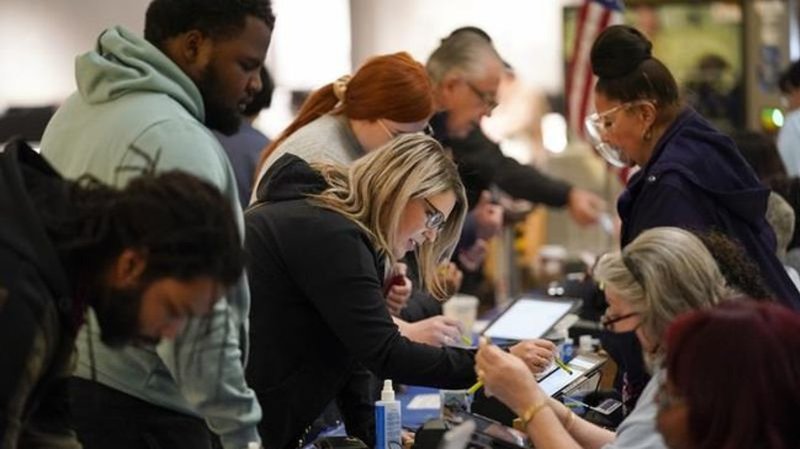
Control of Congress, governorships at stake; polls closing
WASHINGTON (AP) — A fierce competition for control of Congress along with dozens of governors’ mansions and key election posts was unfolding Tuesday as polls began closing in several closely watched states along the East Coast.
In Georgia, Democratic Sen. Raphael Warnock and Republican challenger Herschel Walker were vying for a seat that could determine control of the Senate. GOP Gov. Brian Kemp and Democrat Stacey Abrams were meeting for a rematch of their marquee 2018 campaign. The candidates must win at least 50% of the vote to avoid a December runoff.
Meanwhile, in Virginia, Democratic Reps. Abigail Spanberger and Elaine Luria were fending off spirited Republican opponents. The results there could serve as early signals of where the U.S. House majority is heading as Republicans hope to reclaim suburban districts that shifted to Democrats during Donald Trump’s tumultuous presidency.
The outcome of races for House and Senate will determine the future of President Joe Biden’s agenda and serve as a referendum on his administration as the nation reels from record-high inflation and concerns over the direction of the country. Republican control of the House would likely trigger a round of investigations into Biden and his family, while a GOP Senate takeover would hobble Biden’s ability to make judicial appointments.


